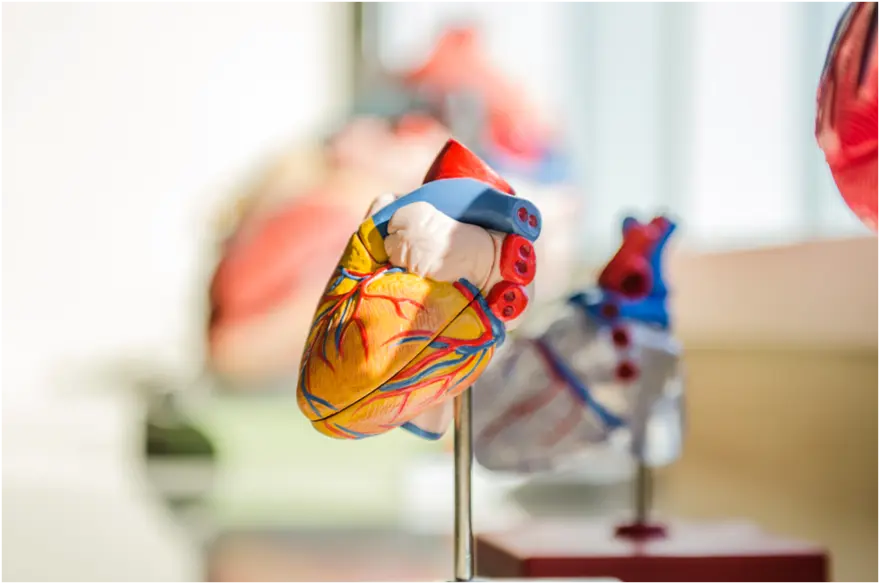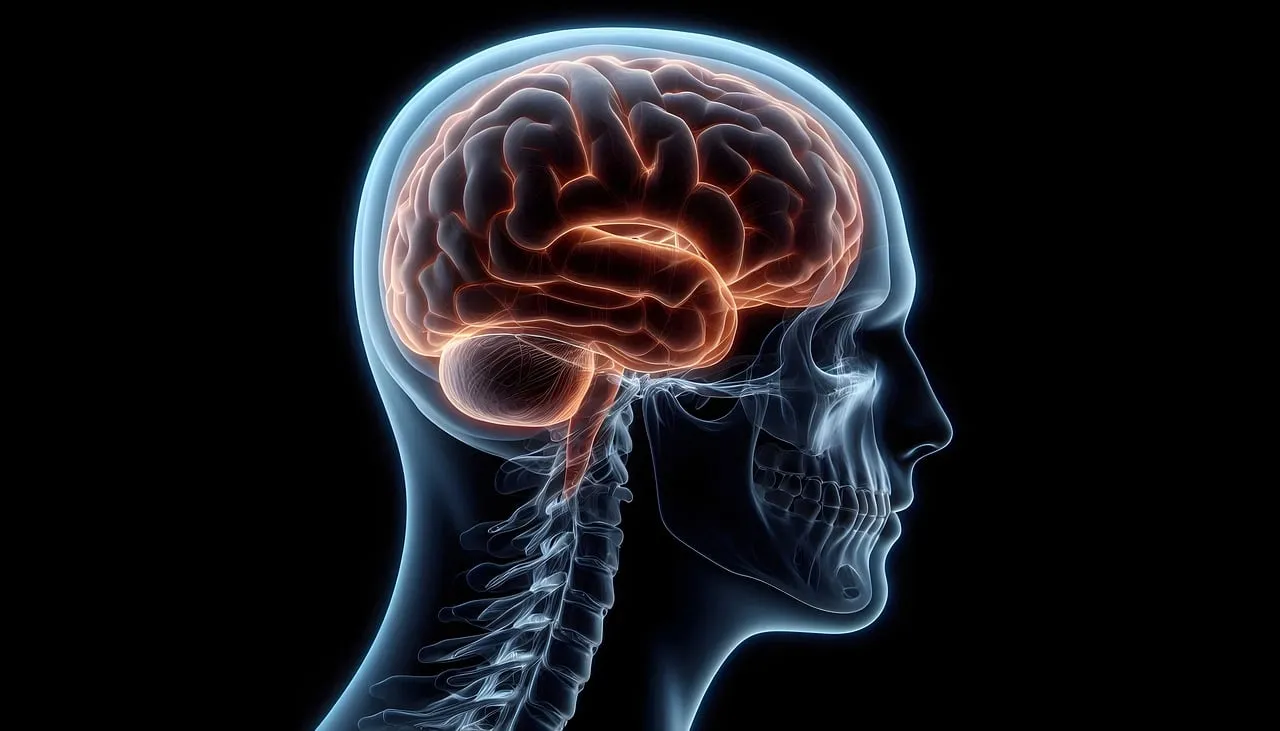Preventive Healthcare
Normal Heart Rate: Pulse, Ranges Danger & More

Table of Contents
- What is Your Heart Rate?
- Is There a Difference Between Your Heart Rate And Your Pulse?
- What Are The Different Ways to Feel Your Pulse, And Why Do They Matter?
- How Do I Use My Pulse to Measure My Normal Heart Rate?
- Should I Be Able To Hear My Pulse In My Ears?
- What Heart Rate Should I Expect to Have?
- What is a Normal Heart Rate?
- What is a fast pulse rate?
- What is a slow pulse rate?
- What is a dangerous heart rate?
- Why do I need to check my heart rhythm?
- How does exercise affect heart rate?
- What Things Affect Heart Rate?
- What if My Resting Normal Heart Rate is Not in The Expected Range?
- What Are My Target And Maximum Heart Rates?
- What Should I Do If I'm Concerned About My Normal Heart Rate?
- When to see a doctor?
- Conclusion
- FAQs
What is Your Heart Rate?
Heart rate is the number of times your heart beats in a minute. Your body matches the heartbeat as per the activity you do in your daily life. This is why your heartbeat becomes fast when you are excited, active, or scared and slows down when you are at rest, in a comfortable position, or calm. This heart rate indicates your overall health and implies that it may be a sign of heart disease if it is too low or too high. Your doctor can sense the heart rate and diagnose any underlying medical condition.
Is There a Difference Between Your Heart Rate And Your Pulse?
Your heart rate and pulse are interrelated but not the same.
Your heart rate is how fast your heart beats in a minute, while your pulse is how you feel your heart rate. When your heart beats, it circulates blood through a network of arteries. The pulse indicates the pressure built up in the streets that gradually goes up as the heart pushes the blood to keep it circulating in the body.
Your heart relaxes in between the beats and exerts pressure back down again. That is why you can feel the heartbeat like a single push instead of constant pressure. Usually, a normal heart pulse rate indicates that the person is physically fit. This implies your heart doesn't need to beat fast to keep your body healthy and in good condition.
What Are The Different Ways to Feel Your Pulse, And Why Do They Matter?
It is easy to feel your pulse at certain places in your body. You must use your index finger and ring finger to feel the pulse at the following parts:
- Neck: Start from your earlobe and move your finger along the skin straight down. You can sense your pulse underneath your jawbone.
- Wrist: While keeping your palm upward, hold your hand; you can sense the pulse where the muscle of your thumb merges with the wrist.
- Inside your elbow: Move your fingers of opposite hands to the centre hollow area of your elbow. Now, pull your fingers towards your body along the skin. You can sense the pulse a little off-centre of the inside of your elbow.
Along with the abovementioned parts, your healthcare provider can also check your pulse from other locations. Although these places are hard to find without training, your healthcare provider may refer to such locations to discover the specific issues. These include:
- Temporal (on the upper side of your ear canal, forward to the fleshy ridge, where your cheek meets the ear).
- Chest (place above your heart)
- Belly
- The place where the upper thigh and body meet.
- Behind your knee
- On your feet
How Do I Use My Pulse to Measure My Normal Heart Rate?
Once you have found the pulse (the easiest place is to find it on your neck or wrist), you can measure the pulse rate by counting your heartbeats in a minute. If you want to calculate the pulse faster, you only need a little bit of maths. Given below is the easiest way to calculate your normal heart pulse rate:
- For 10 seconds, count your heartbeat. Once 10 seconds are over, multiply the number by six.
- For 15 seconds, count your heartbeat. Once the counting is over, multiply the number by four.
- Count the heartbeat for 30 seconds. When 30 seconds are over, multiply the number with two.
The number you will get from any of these steps will be your 'beats per minute', which will be your heart rate. The abbreviation for beats per minute is 'bpm'.
When you measure your heart rate in an inactive condition, that will be your resting heart rate. You can also calculate your heart rate during exercise, as it is the best way to know the intensity of your workout.
Should I Be Able To Hear My Pulse In My Ears?
Yes, you can hear your pulse in your ears. You can listen to the vibration by resting your head on the hand or arm. However, you cannot hear the sound once you change your position. But even after changing your position, you must contact your healthcare provider to see if you can listen to the pulse level.
What Heart Rate Should I Expect to Have?
The normal heart pulse rate of your body will depend on your age and your overall health condition. Normal heart rate by age is supposed to be higher in young children. Here is the expected resting heart rate for children:
- Newborn (up to 4 weeks): 100 - 205 beats bpm
- Infant (4 weeks to 1 year): 100 - 180 bpm
- Toddler (1 to 3 years): 98 -140 bpm
- Preschool (3 to 5 years): 80 - 120 bpm
- School-age (5 to 12 years): 75 - 118 bpm
- Adolescents (13 to 18 years): 60 - 100 bpm
The above resting heart rate mentioned for children is in the condition when awake. The heart rate will be lower when they are asleep. For adults above 18 years, the normal heart rate by that age is expected to be around 60-100 bpm.
What is a Normal Heart Rate?
A normal heart pulse rate in adults is between 60-100 bpm. You can measure your resting heart rate by counting your pulse.
Usually, a lower heart rate usually indicates better body functioning and heart fitness. For example, a well-trained athlete may have a normal heart rate of around 40 beats per minute.
What is a fast pulse rate?
A fast pulse rate, medically known as tachycardia, is defined as a resting heart rate over 100 beats per minute (bpm) in adults. Some common causes of a racing heart include:
- Anxiety or panic attacks
- Fever or dehydration
- Stimulants like caffeine or certain medications
- Overactive thyroid (hyperthyroidism)
- Heart rhythm disorders like atrial fibrillation
If you frequently notice your heart beating rapidly at rest, especially if accompanied by dizziness, shortness of breath, or chest discomfort, it's important to get checked by a doctor. An abnormally fast pulse rate can strain the heart over time.
What is a slow pulse rate?
On the flip side, bradycardia is the medical term for a slow pulse rate, generally defined as a resting heart rate under 60 bpm. In some cases, a below-average heart rate is not a concern. Well-conditioned athletes, for example, often have resting heart rates in the 40s due to their cardiovascular efficiency.
A slow pulse rate can sometimes indicate an underlying problem such as:
- Certain medications like beta blockers
- Underactive thyroid (hypothyroidism)
- Imbalances in electrolytes like potassium
- Problems with the heart's natural pacemaker
- Damage to the heart from aging or heart disease
If you're not an athlete, a slow pulse rate along with symptoms like fatigue, lightheadedness, or fainting warrants a trip to the doctor to identify the underlying cause.
What is a dangerous heart rate?
A dangerous pulse rate is one that is significantly higher or lower than normal, to the point of potentially impairing heart function. This typically means a resting rate consistently above 120-150 bpm (tachycardia) or below 40-50 bpm (severe bradycardia).
Additionally, sudden changes to your normal heart rate or an erratic pulse should be promptly evaluated. Dangerous heart rhythms can manifest in symptoms like:
- Chest pain or pressure
- Shortness of breath
- Dizziness or fainting
- Heart palpitations or a pounding heartbeat
If you experience any of these red flags, especially if you have a history of heart problems, seek immediate medical attention. Swift treatment can help prevent complications like heart failure, stroke, or cardiac arrest.
Why do I need to check my heart rhythm?
Regularly checking your heart rhythm allows you to track your pulse rate and detect any irregularities early on. Even if you feel fine, periodic self-checks can reveal asymptomatic arrhythmias before they cause problems.
Consider these reasons to monitor your heart rate:
- Detect irregular rhythms: Heart arrhythmias like atrial fibrillation often have no obvious symptoms. Checking your pulse can alert you to concerning irregularities.
- Assess heart health: Tracking your resting heart rate over time lets you gauge your cardiovascular fitness. With regular aerobic exercise, you may notice your resting heart rate decrease as your heart grows stronger.
- Manage stress: Since stress and anxiety can cause a fast pulse rate, monitoring your heart rhythm can clue you in when it's time to prioritise relaxation and self-care.
- Adjust medications: For those on heart medications like beta blockers, checking your heart rate helps ensure your prescription keeps your rhythm in a healthy range without causing an overly slow pulse rate.
How does exercise affect heart rate?
Exercise is a key player in heart health, and monitoring your heart rate during physical activity can help you optimise your workouts. Typically, your pulse will increase proportionally to the intensity of exercise as your heart works harder to deliver oxygenated blood to your muscles.
The extent of this increase depends on factors like your age, fitness level, and maximum heart rate. A common formula to estimate maximum heart rate is 220 minus your age. So, for a 40-year-old, the estimated maximum is 180 bpm. During moderate exercise, your target heart rate should be 50-70% of this maximum, or 90-126 bpm. For vigorous exercise, aim for 70-85%, or 126-153 bpm.
Over time, regular cardio exercise can actually lower your resting normal heart rate as your heart becomes more efficient. For example, a sedentary person might have a resting pulse of 80 bpm, while an athlete's might be 50 bpm. The important thing is to know your baseline and target rates and stop if you feel dizzy or short of breath.
What Things Affect Heart Rate?
Several factors can affect your resting heart rate and can make it beat fast or slow. Let's take a look at such factors:
- Emotions and anxiety can change your resting heart rate. When you are depressed or anxious, your body will release hormones, which include adrenaline and cortisol. These hormones can cause your heart to beat more rapidly.
- Body temperature also affects your resting heart rate. When it is hot, your body will radiate warmth to cool down. This will increase your heart rate.
- Your age also affects the rate of your heart pulse normally. For instance, in old age, your heart can't beat as fast as it did when you were young.
What if My Resting Normal Heart Rate is Not in The Expected Range?
You must consult your doctor if your resting heart rate is continuously above 100 beats in a minute. Such a condition is called tachycardia. You must also consult a doctor if you are not a trained athlete and your heart rate is below 60 bpm. This condition is called bradycardia.
Furthermore, you should also seek medical attention if you have any of the following symptoms in addition to a sluggishly normal heart pulse rate:
- Chest aches
- Bewilderment and memory issues
- Lightheadedness
- Absence of vigour
- Palpitations in the heart
What Are My Target And Maximum Heart Rates?
Your target heart rate is the ideal range in which your heart will function properly, even during moderate-intensity exercise. Moderate-intensity exercise is considered to be healthy for the heart and does not put a strain on your body.
Exercising very strenuously allows you to reach up to 95% of your maximum resting heart rate. However, you must ensure not to go too high, as excessive strain on your heart will make potential risks outweigh the benefits.
Even if you are not exercising regularly, you must speak with your healthcare provider before starting any exercise, especially when you have any heart disease. Your healthcare provider will be suitable to guide you on effective and safe ways to exercise without putting your well-being at risk and help you maintain a normal pulse rate.
Here is the chart to know your target and maximum heart rates.
|
Age |
Maximum heart rate |
Normal heart rate by age |
|
20 |
200 |
120 to 160 |
|
25 |
195 |
117 to 156 |
|
30 |
190 |
114 to 152 |
|
35 |
185 |
111 to 148 |
|
40 |
180 |
108 to 144 |
|
45 |
175 |
105 to 140 |
|
50 |
170 |
102 to 136 |
|
55 |
165 |
99 to 132 |
|
60 |
160 |
96 to 128 |
|
65 |
155 |
93 to 124 |
|
70 |
150 |
90 to 120 |
|
75 |
145 |
87 to 116 |
|
80 |
140 |
84 to 112 |
|
85 |
135 |
81 to 108 |
|
90 |
130 |
78 to 104 |
|
95 |
125 |
75 to 100 |
|
100 |
120 |
72 to 96 |
Here is a simple maths trick you can do yourself to know the maximum and target rates.
- 220 - your age = your maximum heart rate
- Maximum * 0.6 will be your low-end target range
- Maximum * 0.8 will be your high-end target range.
Let's take an example here to understand this calculation in a better manner. Suppose your age is 20 years. Then, your maximum heart rate will be around 200 bpm (i.e., 220-20=200). At this age, your low-end target range will be around 120bpm (i.e., 200*0.6=120), and your high-end target range will be around 160bpm (i.e., 200* 0.8=160 bpm)
What Should I Do If I'm Concerned About My Normal Heart Rate?
If you are concerned about your resting heart rate, you must consult your healthcare provider. They are suitable people who can inform you about your questions or refer you to a specialist if needed.
If you are experiencing any of the following signs, then you must consult your healthcare provider:
- Resting heart pulse normal consistently is too high or too low.
- An irregular heartbeat or a heartbeat that skips with time.
- Suppose you get a vibrating sensation instead of a single 'thump' while counting your pulse. This condition is called 'thrill' and indicates some heart-related problems.
- If you have heart palpitations, i.e., you get an unpleasant sensation of your heartbeat without feeling the normal range of the pulse rate.
Moreover, it is advised to go for an annual health checkup so that the healthcare provider can measure the heart rate and identify heart-related problems, if any, which can be treated early.
When to see a doctor?
While some variation in heart rate is normal, certain signs warrant medical attention. See your doctor if you experience:
- A consistently fast pulse rate above 120 bpm or slow pulse rate below 40 bpm at rest
- Chest pain, shortness of breath, fainting, or dizziness with pulse changes
- Fluttering, pounding, or irregular heartbeats
- Sudden changes in heart rate not due to physical activity or normal situations like excitement
You should also see your doctor for regular heart health check-ups if you have cardiovascular risk factors like high blood pressure, high cholesterol, diabetes, or a family history of heart disease. They may recommend an electrocardiogram (ECG) or wearing a portable monitor to detect any abnormal rhythms.
Conclusion
Your heart rate by age is the simplest way to know about your heart condition. It is quite easy for your healthcare provider to detect any change in your heartbeat and know about the problems you might be facing. By understanding your heart rate especially the target heart rate, you can carry on your exercise smartly. Therefore, your doctor may recommend lab tests like lipid profile to know your heart condition and can initiate the desired treatment by knowing your average heart pulse. So, contact Metropolis for any lab test and book your slot. This lab also offers convenient and affordable home blood collection services, making pathology services a cakewalk!
FAQs
Is a 120 heart rate normal?
Generally, no. For most adults, a resting heart rate of 120 bpm is considered tachycardia and warrants medical evaluation. However, a pulse of 120 bpm during moderate exercise is typically normal. The key is to know your normal resting rate and target exercise zones.
Is 80-90 a normal heart rate?
Yes, a resting heart rate between 80-90 bpm falls within the normal heart rate range for most adults. However, factors like stress, anxiety, or certain medications can temporarily elevate your pulse. If your resting rate consistently exceeds 90 bpm, discuss it with your doctor.
What is a good heart rate by age?
Normal heart rate ranges vary by age, with infants and children having faster baseline rates than adults. Here are general norms:
- Newborns: 100-205 bpm
- Toddlers: 98-140 bpm
- Children 3-5 years: 80-120 bpm
- Children 6-11 years: 75-118 bpm
- Adolescents: 60-100 bpm
- Adults: 60-100 bpm
Is 72 a good heart rate?
Yes, a resting heart rate of 72 bpm is considered normal and healthy for most adults. In fact, people with a resting pulse in the 60-70 range often have better cardiovascular fitness and a lower risk of heart disease compared to those with consistently higher rates.
What's an unhealthy heart rate?
An unhealthy resting heart rate is typically one that falls outside the norms for your age group, especially if accompanied by symptoms. For adults, this usually means sustained rates below 50 bpm or above 120 bpm at rest. Unhealthy rates can reflect underlying heart problems, so it's important to see your doctor if you have concerns.
Is 150 bpm bad?
A heart rate of 150 bpm during vigorous exercise is normal for many adults. However, a resting pulse of 150 bpm (tachycardia) is considered abnormally high and should be medically evaluated, especially if you have symptoms like chest pain or dizziness.
Is a heart rate of 200 dangerous?
In most cases, yes. A sustained heart rate of 200 bpm, especially at rest, is dangerous and requires immediate medical attention. This extremely fast pulse rate can lead to dizziness, chest pain, fainting, and in severe cases, heart attack or stroke. Even during intense exercise, a rate over 200 bpm exceeds the normal maximum for most adults.
What heart rate is too high?
Generally, a resting heart rate consistently above 120 bpm is considered too high for adults and may signal an underlying condition like an overactive thyroid, heart damage, or arrhythmia. A rate over 150 bpm at rest is a medical emergency. During exercise, a pulse exceeding your maximum (generally 220 minus your age) is too high.




























